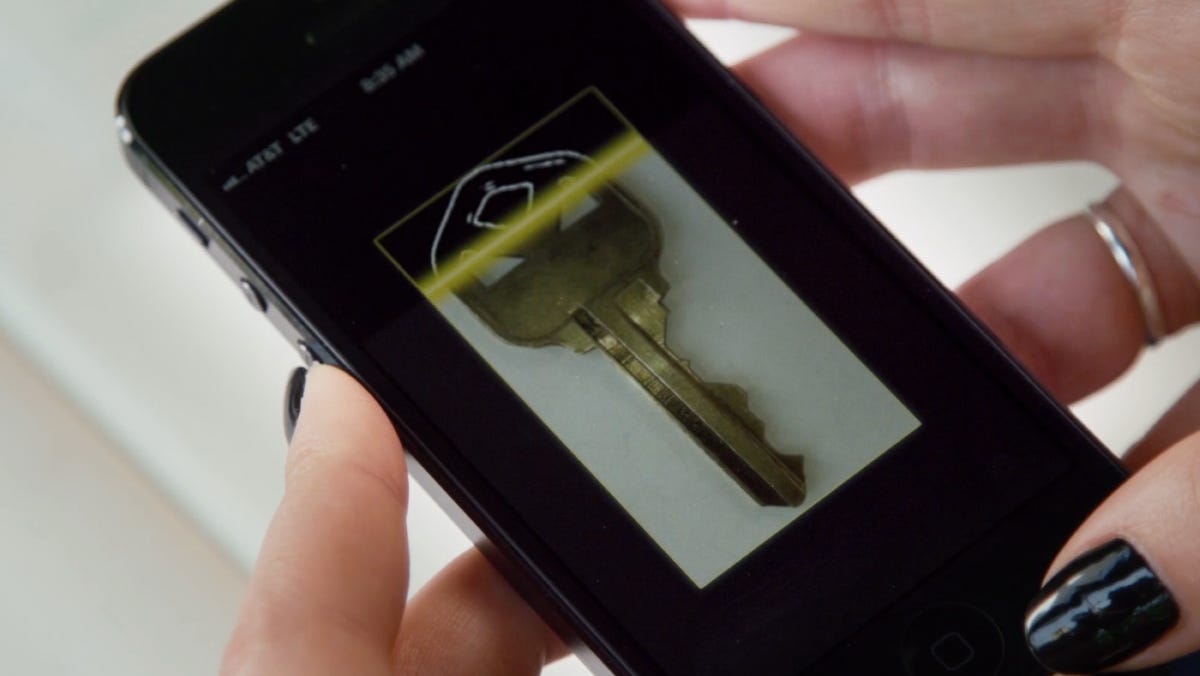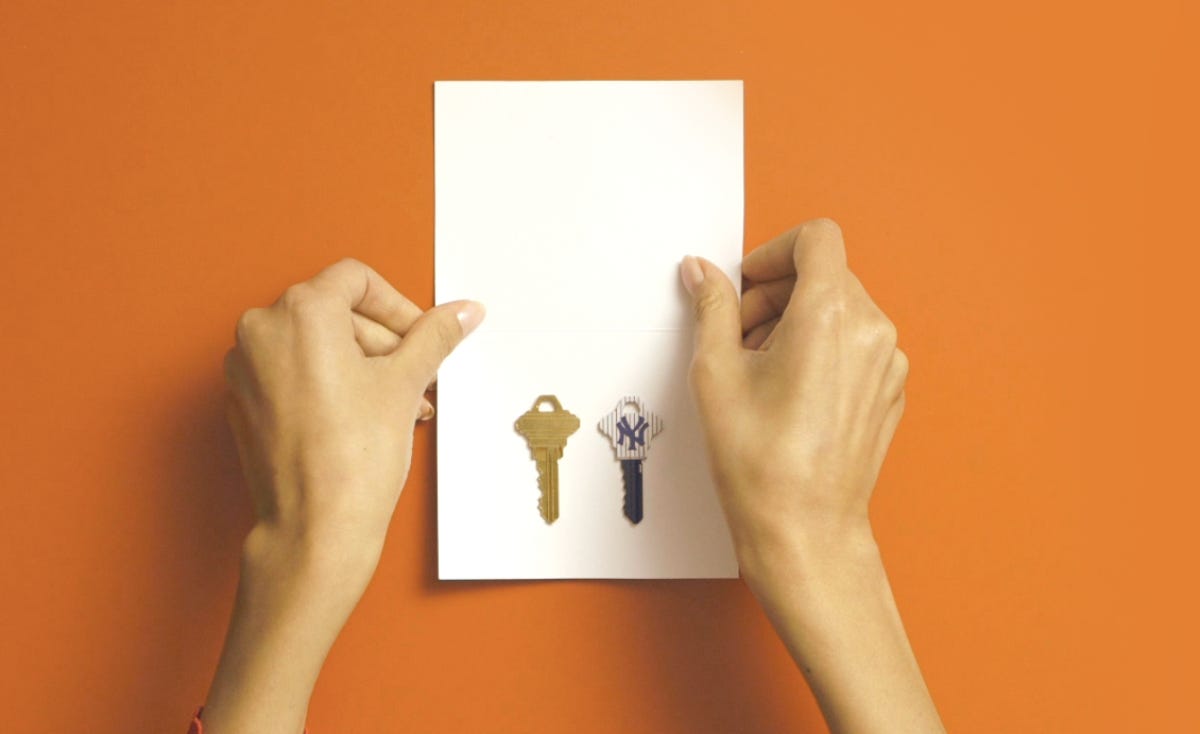
KeyMe
I’ll never forget the moment I swore I’d never lose my keys again: Heavy snowfall and a freezing cold night in upstate New York, and I’m locked out of my Ford Escort with its the engine running and my house keys dangling from the ignition.
I haven’t kept my word — I still lose my keys from time to time. In fact, the average person loses up to nine items a day, with house and car keys in the top three, according to a 2012 survey by British insurance firm Esure.
Now New York-based KeyMe is trying to ease that annoying and costly mistake by changing how we duplicate our keys. KeyMe has almost two dozen automated locations in the greater New York City area, as well as a few scattered around in states like Florida, Arizona and Arkansas. Its most recent location, which it launched this past week, is in San Francisco, with more coming soon.
First, you use KeyMe’s app for iOS — Android is on the way — to take a photograph of your home, office or car key. The app then uploads that image to the company’s system. A press of a button tells the app to deliver the key to you in the mail. Even easier, you can travel to one of KeyMe’s bright yellow kiosks and have a new key printed in under a minute. It costs roughly the same as the standard key-making process — between $3 to $6 — if you have your key in hand, but $20 to have one made from your cloud-stored image.
There are of course low-tech and higher-tech solutions to the problem KeyMe is trying to solve. I now use a a three-key combination lock box from a local hardware store, adding an extra layer of security over the trusty key-under-the-doormat solution. You could also use a $250 August Smart Lock, rated four out of five stars by CNET Reviews , which lets you unlock your front door with a tap on your phone.


KeyMe
So why choose Keyme? For starters, it costs less than using a smart lock or paying up to $100 for an emergency visit from a locksmith. KeyMe’s service gives you a quick and easy way to get a new key at any hour of the day. KeyMe’s catch: you have to think ahead. You can’t duplicate a key if it’s already lost.
Startups like KeyMe are emblematic of a growing trend: Taking everyday processes from a pre-Internet world and using our smartphones to digitize and upload them into the cloud. We store our credit cards in Apple Pay, the iPhone maker’s fingerprint-driven mobile-payment service, while many of us have stopped carrying paper boarding passes because they show up as square snippets of code on our smartphone screens.
KeyMe isn’t eliminating the key. But it is giving us a way to virtually back it up.
But I wondered: can thieves abuse this? KeyMe can’t stop someone who gets her hands on your keys from copying them without your knowledge. Whereas before, a thief would have to take your key to a local hardware store, KeyMe lets them take a simple picture and use that.
I asked KeyMe about this and the company responded that it’s always found that kind of incident unlikely. Few traditional key-skimming techniques leave as much of a digital trail as KeyMe, which requires a fingerprint to use its kiosk, an email account to sign up and a credit card and address to print a new key.
More reassuring, the scenario hasn’t ever happened.
“We’ve made hundreds of thousands of keys,” said Michael Harbolt, KeyMe’s vice president of marketing. “We haven’t had one instance of our keys being used in a crime.”



